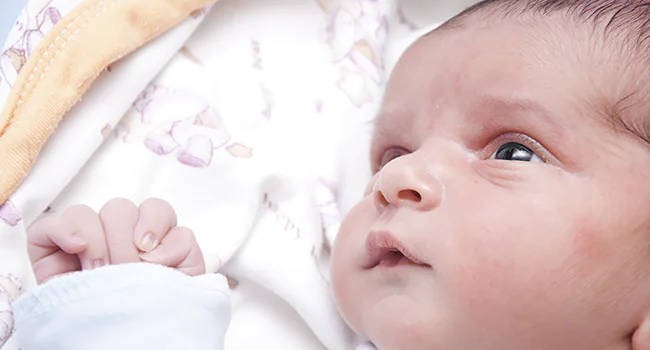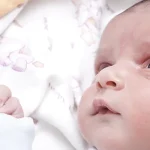What Is Retinopathy of Prematurity?
Retinopathy of Prematurity (ROP) is an eye disease which affects the retina of premature babies. In this disease, blood vessels in the retina grow abnormally causing serious eye and vision problems. If ROP is mild, it goes away on its own, but if it becomes severe with new blood vessel formations, it can also lead to blindness.
Babies who are born before 31 weeks gestation are more prone to this disease. Hence, timely screening and treatment are very critical in such cases to avoid any vision loss.
What are Retinopathy of Prematurity Stages?
Most premature babies who get Retinopathy of Prematurity (ROP) disease can see normally, but if it reaches a severe stage, their vision can be threatened. We’ve outlined 5 Retinopathy of Prematurity Stages for you, ranging from mild to severe:
- Stage 1:
In this stage, a faint demarcation line is visible in the retina plane. This is a mild case of abnormal blood vessel growth, and most children recover on their own from stage 1 ROP.
- Stage 2:
In stage 2, the demarcation line elevates and develops into a ridge between vascular and peripheral retina. This is also a mild case, and the child eventually develops a normal vision.
- Stage 3:
In this stage, blood vessels grow towards the centre of the eye and multiply. This is called Extraretinal Fibrovascular Proliferation, and it causes a ragged appearance as it becomes more severe.
- Stage 4:
This is the case of partial retinal detachment in which abnormal vessels pull the retina away from the eyewall. In this case, doctors suggest vitreoretinal surgery.
- Stage 5:
Total retinal detachment happens at this stage, and if the eye is left untreated, there can be severe visual damage or the child can turn blind.
How to identify Retinopathy of Prematurity Symptoms?
In Retinopathy of Prematurity, very subtle changes happen in the child’s retina that can’t be detected. Hence, there are no visible symptoms. The only way to identify Retinopathy of Prematurity is through an eye examination conducted by the pediatric ophthalmologist. However, very severe ROP can show some symptoms like crossed eyes, white pupils, abnormal eye movements, and severe nearsightedness.
What is the treatment for Retinopathy of Prematurity?
Retinopathy of Prematurity treatment depends on how serious it has become or in which stage it is.
- Laser Therapy:
Laser therapy or photocoagulation is the standard treatment for ROP. In this process, local or general anesthesia is given to the child. The ophthalmologist burns the periphery of the retina using laser to avoid the growth of abnormal blood vessels. Once the laser treatment is done, the doctor conducts regular eye examinations to evaluate the response. If laser therapy doesn’t give the required results, further laser treatments or eye surgery are suggested.
- Cryotherapy:
In this treatment, the doctor uses a freezing cold pen-like instrument to destroy a specific part of the retina which stops abnormal vessel growth. It is rarely used nowadays, as laser therapy gives better results. However, Cryotherapy method is useful in cases when the retina is not fully visible.
- Eye surgery:
In case of severe Retinopathy of Prematurity (ROP) or complete retinal detachment, the doctor can also suggest surgeries like scleral buckling or vitrectomy.
- Scleral Buckling:
In this surgery, a silicone band is placed around the eye which “pushes in” or “buckle” the retina close to the wall, so that it can be reattached. This reattachment can take a few months or even years.
- Vitrectomy:
It is a complex surgery in which the doctor removes the vitreous in the eye with a saline solution. With this, it becomes easy to remove the scar tissue and allows the retina to flatten back against the eyewall.
How Centre for Sight can help?
Timely diagnosis and treatment are critical in Retinopathy of Prematurity, as it can lead to complete blindness in infants. Centre for Sight provides specialized eye care, with highly experienced eye specialists and advanced eye treatment technology. From mild to severe Retinopathy of Prematurity cases, we have experts who provide best-in-class diagnosis and treatment.
Article: Retinopathy of Prematurity affects premature babies.
Author: CFS Editorial Team | Dec 07 2020 | UPDATED 04:00 IST
*The views expressed here are solely those of the author in his private capacity and do not in any way represent the views of Centre for Sight.





